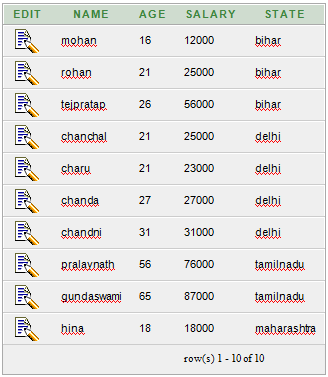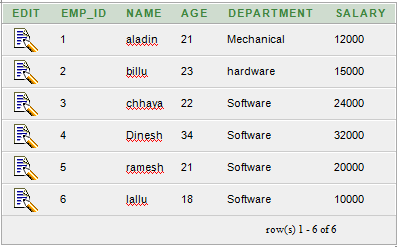Orcale SQL Tutorial
Having Clause
Oracle HAVING Clause
In Oracle, HAVING Clause is used with GROUP BY Clause to restrict the groups of returned rows where condition is TRUE.
Syntax:
Parameters:
expression1, expression2, ... expression_n: It specifies the expressions that are not encapsulated within aggregate function. These expressions must be included in GROUP BY clause.
aggregate_function: It specifies the aggregate functions i.e. SUM, COUNT, MIN, MAX or AVG functions.
aggregate_expression: It specifies the column or expression on that the aggregate function is based on.
tables: It specifies the table from where you want to retrieve records.
conditions: It specifies the conditions that must be fulfilled for the record to be selected.
having_conditions: It specifies the conditions that are applied only to the aggregated results to restrict the groups of returned rows.
Oracle HAVING Example: (with GROUP BY SUM function)
Let's take a table "salesdepartment"
Salesdepartment table:
|

Execute this query:
Output:

Oracle HAVING Example: (with GROUP BY COUNT function)
Let's take a table "customers"
Customer table:
|

Execute this query:
Output:

Oracle HAVING Example: (with GROUP BY MIN function)
Let's take a table "employees"
Employees table:
|

Execute this query:
Output

Oracle HAVING Example: (with GROUP BY MAX function)
Execute this query:
|
Output:
